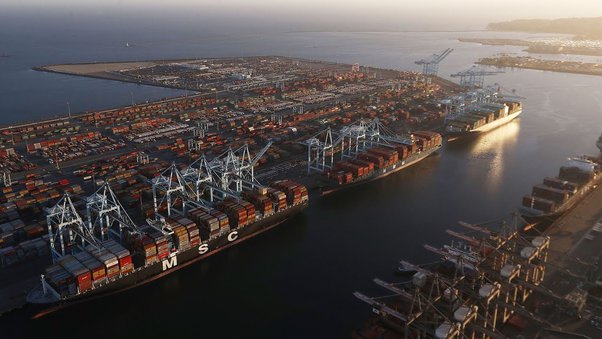Chabahar Port emerges as India’s crucial gateway to Afghanistan, Central Asia, and the broader Eurasian region, offering a strategic counterbalance to Pakistan’s Gwadar port and China’s Belt and Road Initiative.
India gears up to finalize a significant agreement with Iran to manage Chabahar Port for the next decade, marking its first overseas port management venture. The move holds geopolitical significance, particularly during a busy election season.
According to reliable sources quoted in an ET report by Dipanjan Roy Chaudhury, Shipping Minister Sarbananda Sonowal is scheduled to visit Iran on Monday for the signing ceremony, underscoring the agreement’s importance.
Chabahar Port plays a pivotal role in connecting India to Afghanistan, Central Asia, and beyond, offering an alternative route to bypass Pakistan. It forms a crucial part of India’s strategy to link with the International North South Transport Corridor (INSTC), facilitating access to Afghanistan and Central Asia.
In April, the Ministry of External Affairs approved India Ports Global’s proposal to take over operations at Myanmar’s Sittwe Port, indicating India’s expanding maritime presence.
Chabahar Port featured prominently in discussions between Prime Minister Narendra Modi and the Iranian President, highlighting its strategic significance. A pact on Chabahar was initially signed in 2016 during Modi’s visit to Iran, with discussions on expanding India’s role intensifying over subsequent years.
The new long-term agreement aims to replace the original contract, with a validity of 10 years and automatic extension. It will cover operations at the Shahid Beheshti terminal, enhancing India’s connectivity and trade prospects in the region.
India’s efforts to develop Chabahar have attracted interest from resource-rich Central Asian states like Kazakhstan and Uzbekistan, keen to access the Indian Ocean Region and Indian markets. Despite Pakistan’s efforts to persuade Central Asian states to use Karachi port, India remains a preferred choice, evident from ongoing discussions with these countries.
Armenia also seeks to capitalize on Chabahar’s connectivity via the INSTC, underscoring its growing significance as a regional trade hub.




















